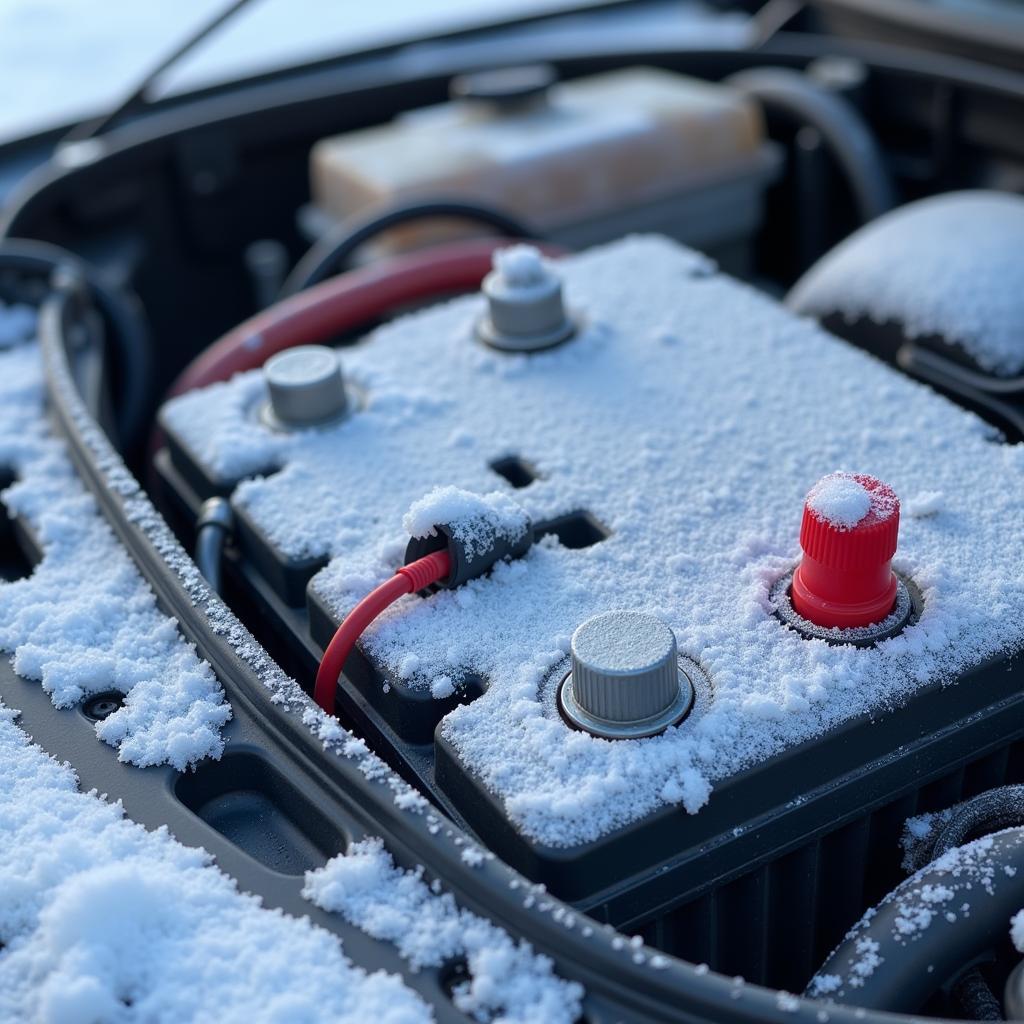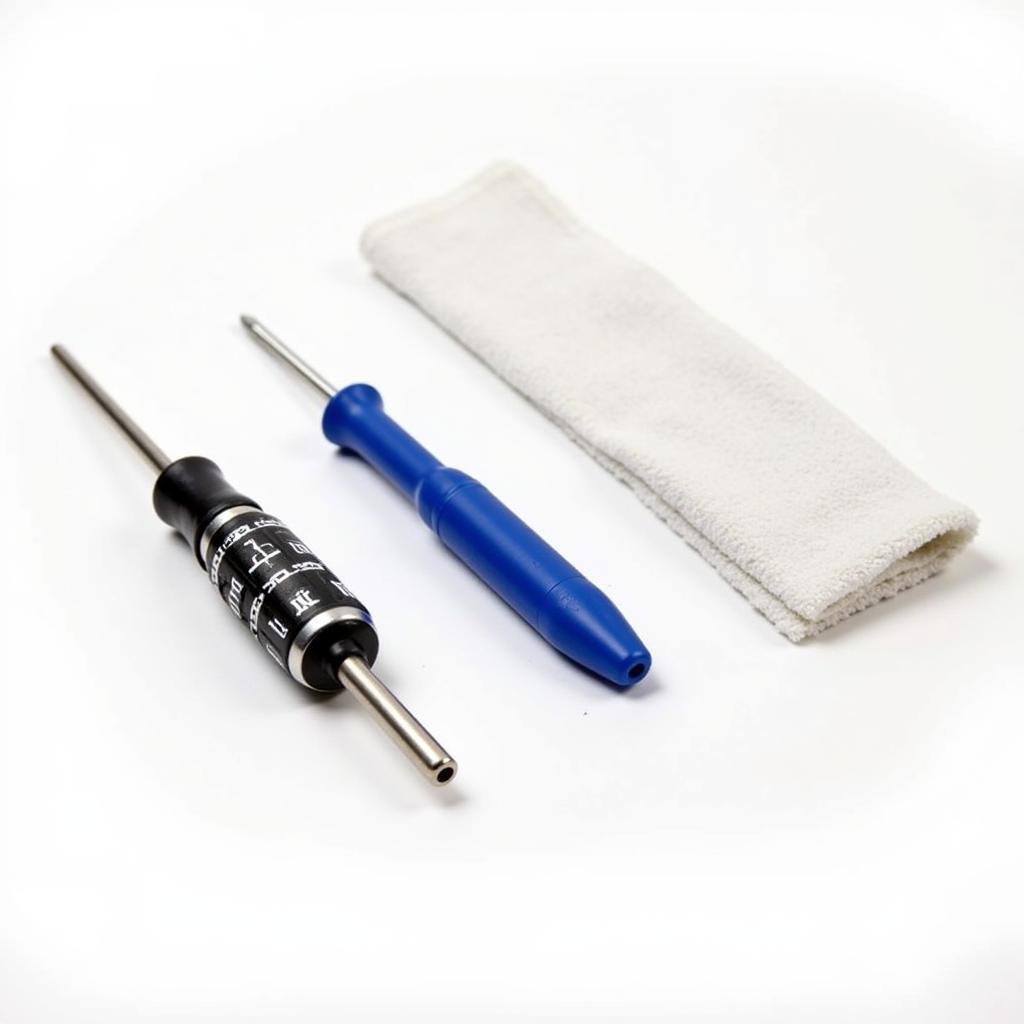A dead car battery without any prior warning can be incredibly frustrating. One minute your car is running fine, the next it’s completely lifeless. This article explores the common reasons why your car battery might die suddenly and provides solutions to get you back on the road, as well as preventative measures to avoid future battery failures. 94 silverado brake warning light problems
Why Did My Car Battery Die Without Warning?
Several factors can contribute to a car battery dying suddenly. Understanding these causes can help you diagnose the problem and prevent it from happening again. These include parasitic drains, faulty alternators, extreme temperatures, old age, and corroded terminals.
Parasitic Drains: The Silent Killers
A parasitic drain occurs when a component in your car continues to draw power even when the ignition is off. This can slowly drain your battery over time, leading to a surprise dead battery. Common culprits include interior lights, faulty wiring, and aftermarket accessories.
Faulty Alternator: The Powerhouse Problem
The alternator is responsible for recharging the battery while the engine is running. A failing alternator won’t charge the battery properly, eventually leading to a dead battery. Signs of a bad alternator can include dimming headlights, flickering dashboard lights, and unusual noises from the engine compartment.
Extreme Temperatures: A Battery’s Worst Enemy
Both extreme heat and cold can negatively impact a car battery’s performance and lifespan. Extreme heat can accelerate the chemical reactions within the battery, leading to faster degradation. Extreme cold can thicken the battery’s electrolyte, making it harder for the battery to deliver power.
 Car Battery in Cold Weather
Car Battery in Cold Weather
Old Age: The Inevitable Decline
Like any other component, car batteries have a limited lifespan. Most car batteries last between three and five years. As a battery ages, its ability to hold a charge diminishes, increasing the likelihood of it dying without warning.
Corroded Terminals: A Common Culprit
Corrosion on the battery terminals can disrupt the flow of electricity between the battery and the car’s electrical system. This can prevent the battery from charging properly and eventually lead to a dead battery.
What to Do When Your Car Battery Dies
If your car battery dies unexpectedly, there are several steps you can take:
- Jump-Start Your Car: Using jumper cables and another vehicle, you can jump-start your car to get it running again. Be sure to follow the proper procedure to avoid any damage.
- Call for Roadside Assistance: If you’re not comfortable jump-starting your car or don’t have access to another vehicle, roadside assistance can provide a jump-start or tow your car to a repair shop.
- Test Your Battery: Once your car is running, have your battery tested at an auto parts store or repair shop to determine its condition.
Preventing Future Battery Failures
- Regular Battery Testing: Have your battery tested every six months, especially if it’s older than three years.
- Clean Battery Terminals: Regularly clean your battery terminals with a wire brush and a mixture of baking soda and water.
- Limit Short Trips: Short trips prevent the alternator from fully recharging the battery.
- Turn Off Accessories: Make sure all lights and accessories are turned off when the car is not in use.
- Park in a Garage: Parking in a garage can help protect the battery from extreme temperatures.
“Regular battery maintenance is key to preventing unexpected failures,” says John Smith, Senior Automotive Technician at Smith Auto Repair. “Simple checks and cleaning can significantly extend the life of your battery.”
Conclusion
A car battery dying without warning can be a major inconvenience. However, by understanding the common causes and taking preventative measures, you can significantly reduce the risk of it happening again. Regular maintenance, such as cleaning terminals and testing the battery, is crucial for a healthy car battery. Remember, if your car battery continues to die without warning despite regular maintenance, it’s important to consult a qualified mechanic to diagnose and resolve any underlying issues. Don’t let a dead battery leave you stranded.
“Addressing a dying battery promptly ensures your vehicle remains reliable and prevents potential damage to other electrical components,” adds Jane Doe, Lead Electrical Systems Engineer at Doe Automotive Solutions.
FAQ
- How long does a car battery last? Most car batteries last between three and five years.
- What are the signs of a bad alternator? Dimming headlights, flickering dashboard lights, and unusual noises from the engine compartment are common signs of a failing alternator.
- How do I clean my battery terminals? Use a wire brush and a mixture of baking soda and water to clean corroded battery terminals.
- Can extreme temperatures affect my car battery? Yes, both extreme heat and cold can negatively impact a car battery’s performance and lifespan.
- What should I do if my car battery dies? Try jump-starting the car, or call for roadside assistance. Have the battery tested as soon as possible.
- How can I prevent my car battery from dying unexpectedly? Regular maintenance, such as cleaning terminals and testing the battery, can help prevent unexpected battery failure.
- Is it safe to jump-start my car? Yes, it is generally safe to jump-start a car if you follow the proper procedure.

